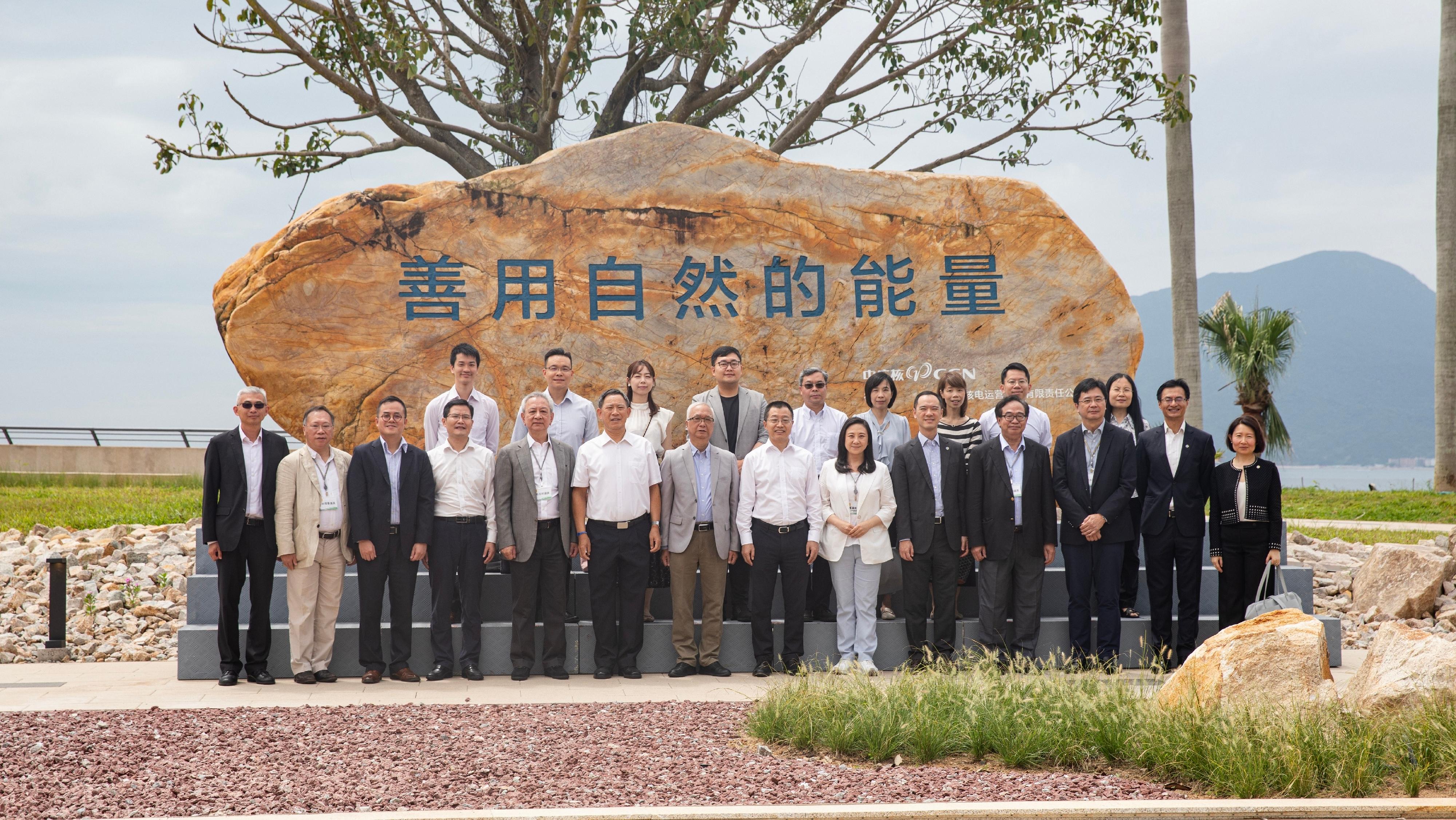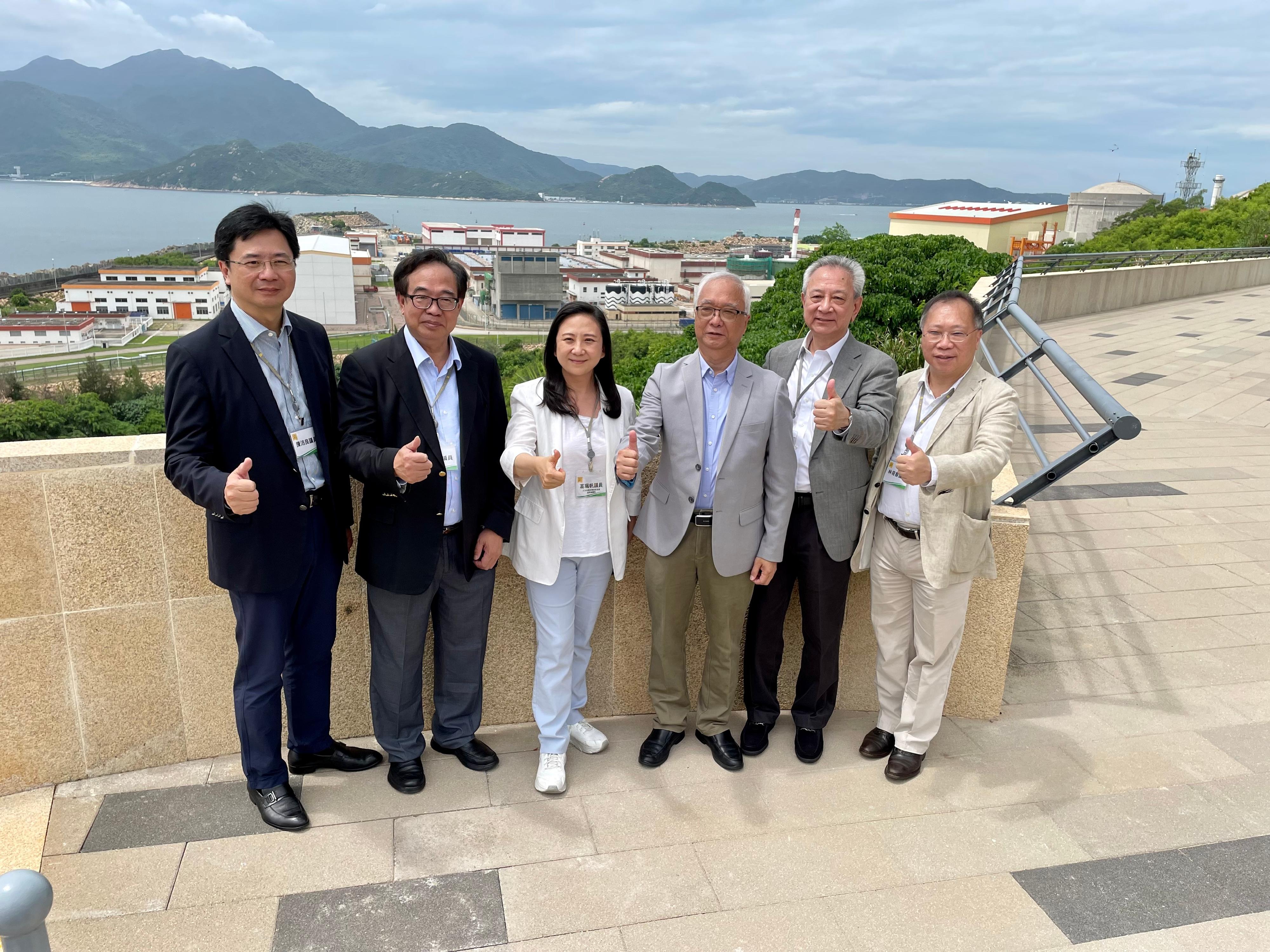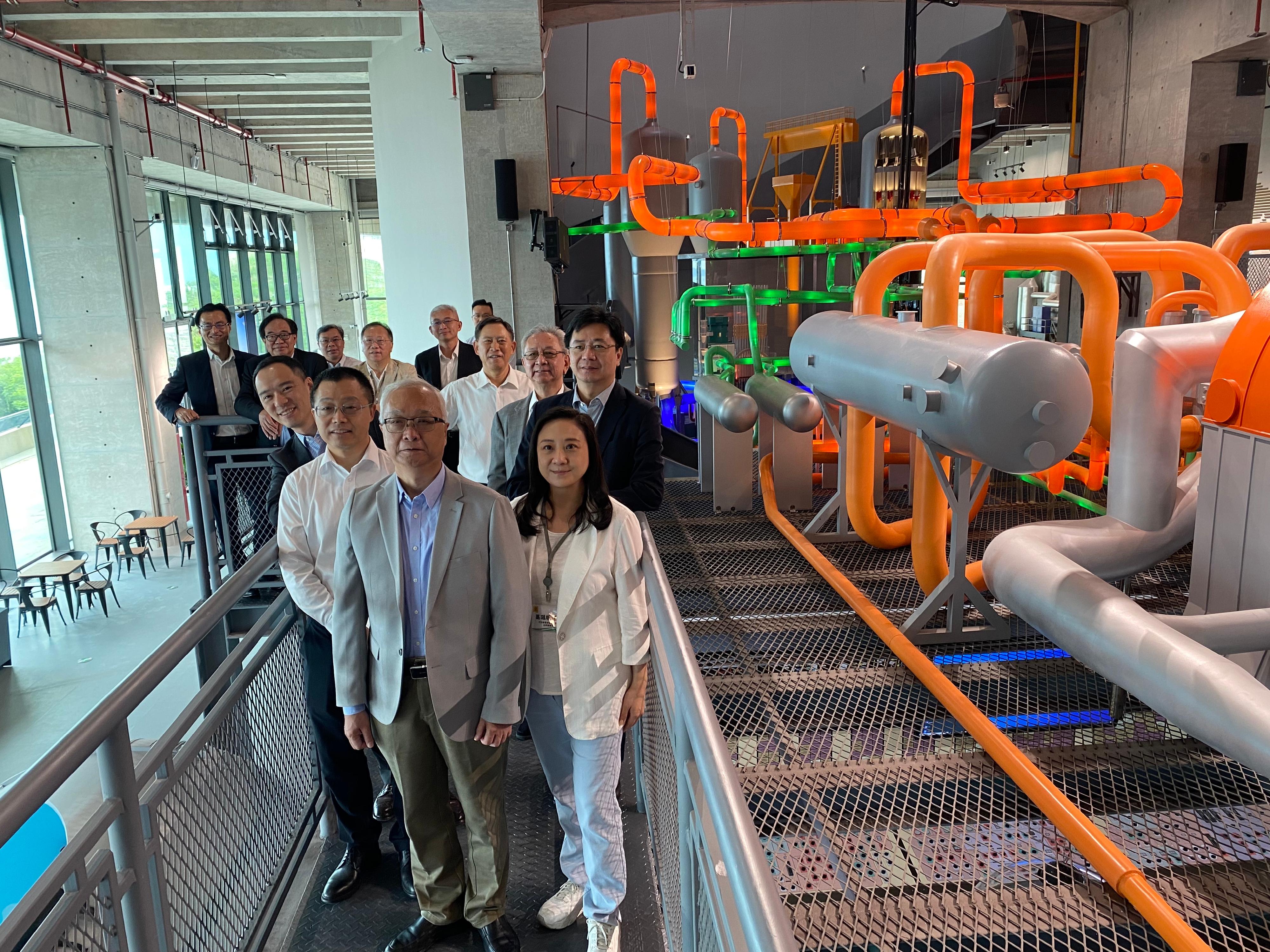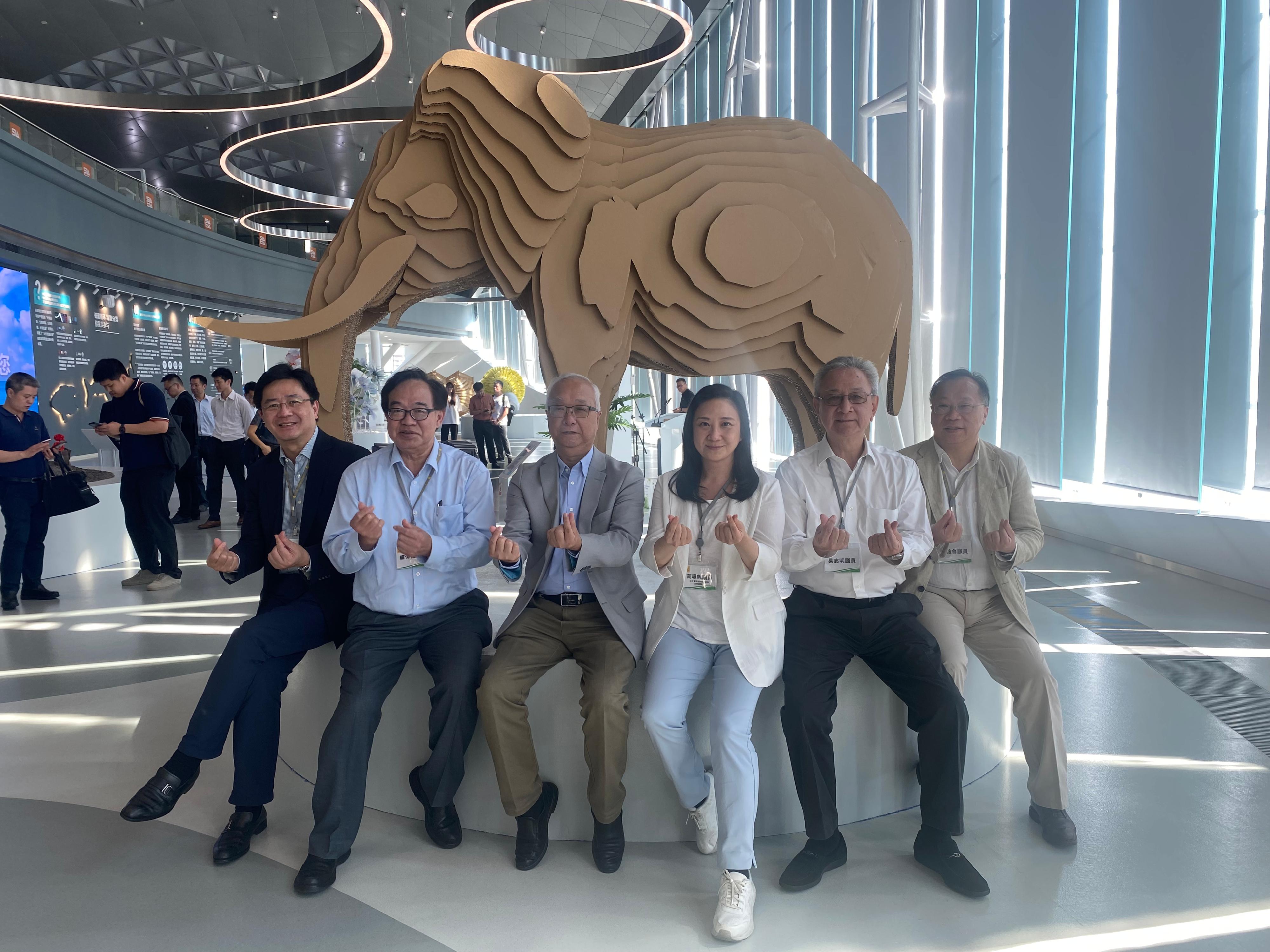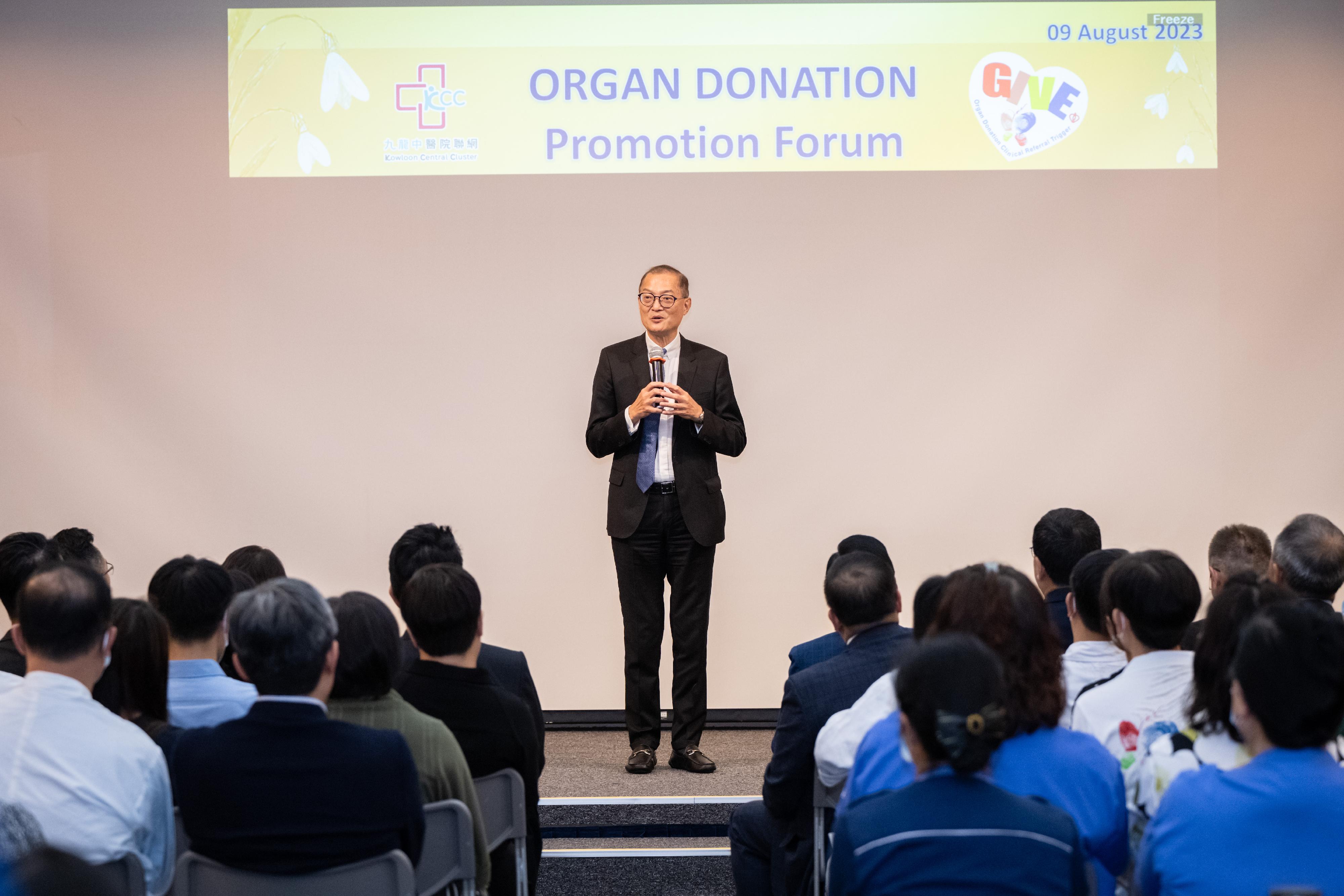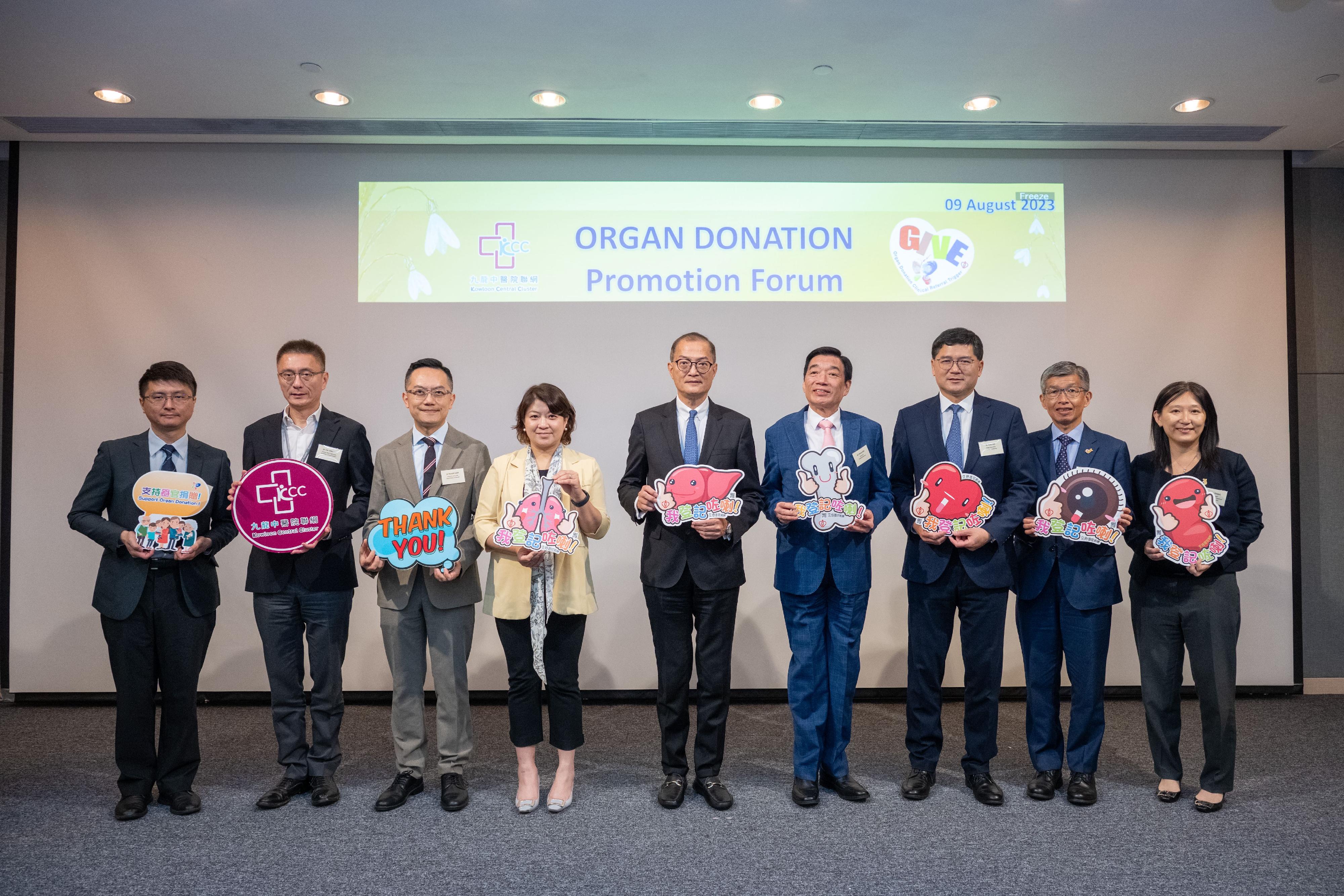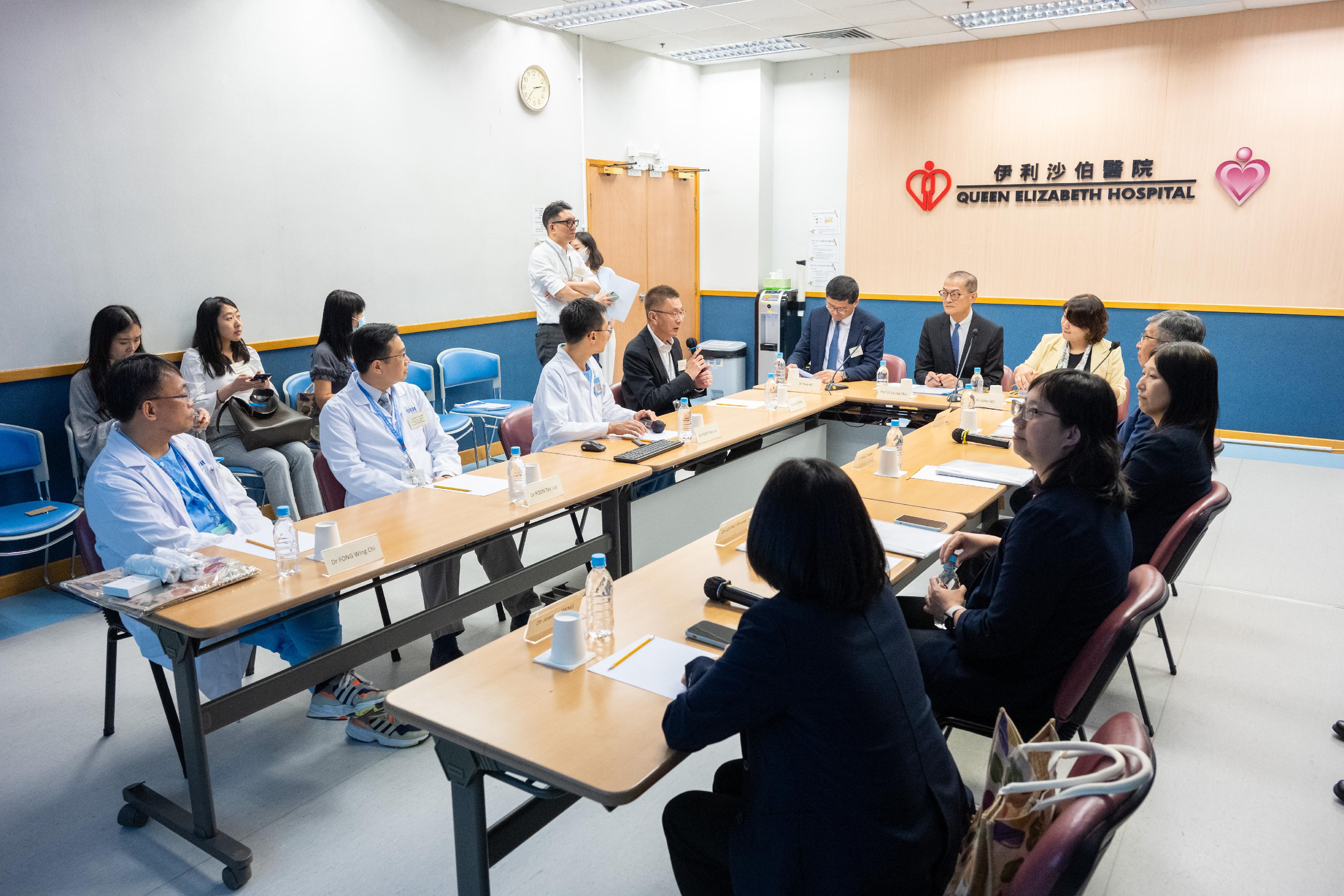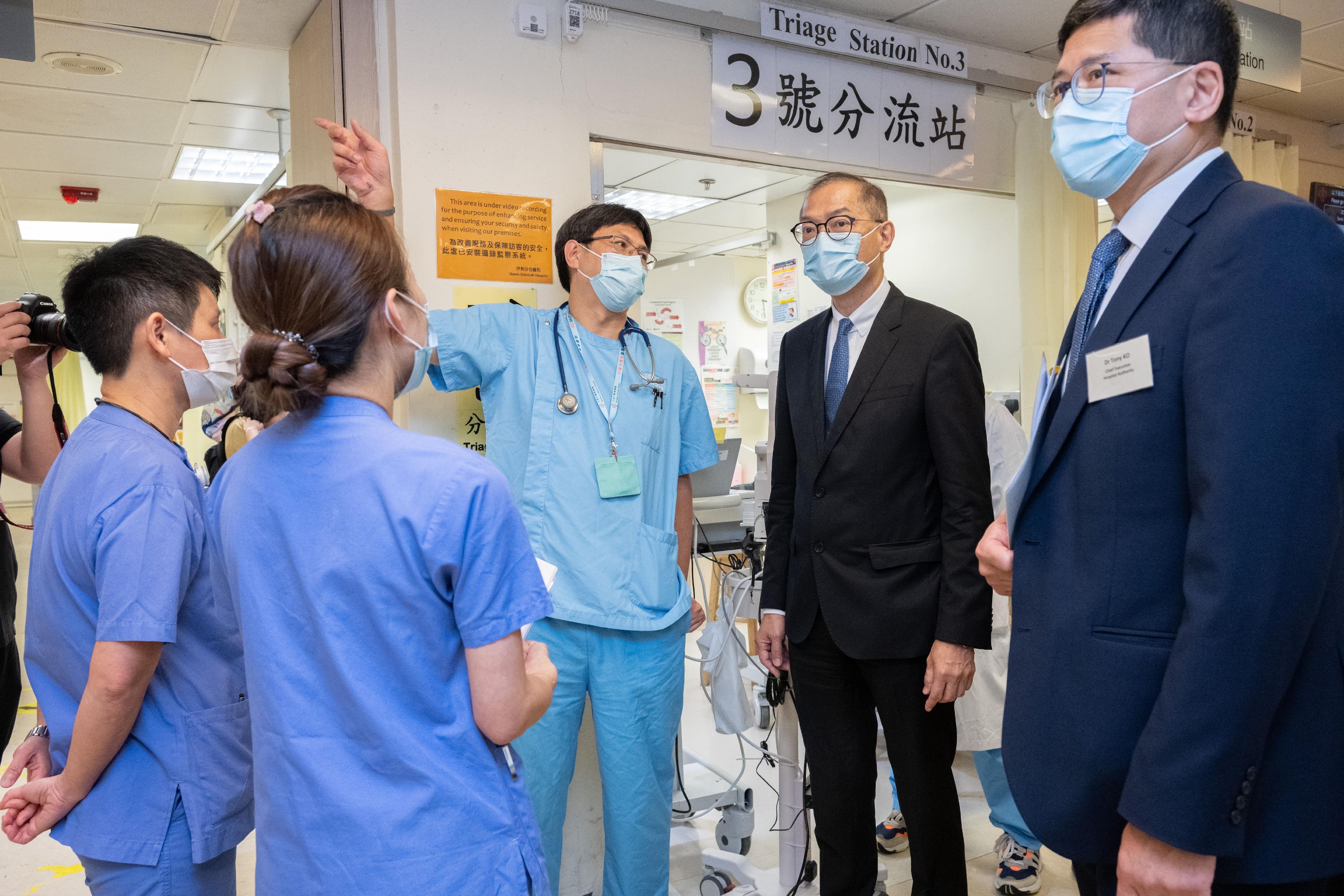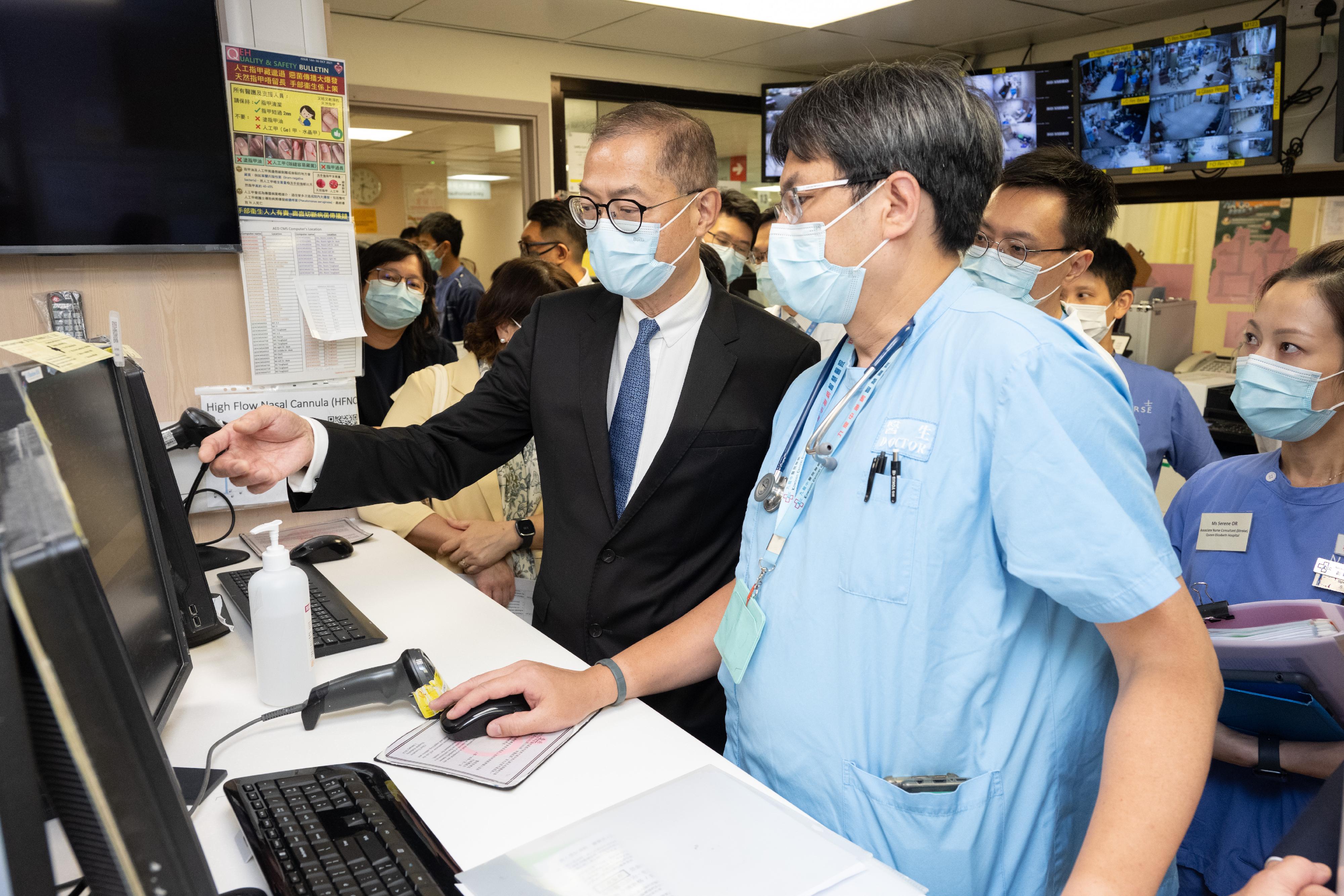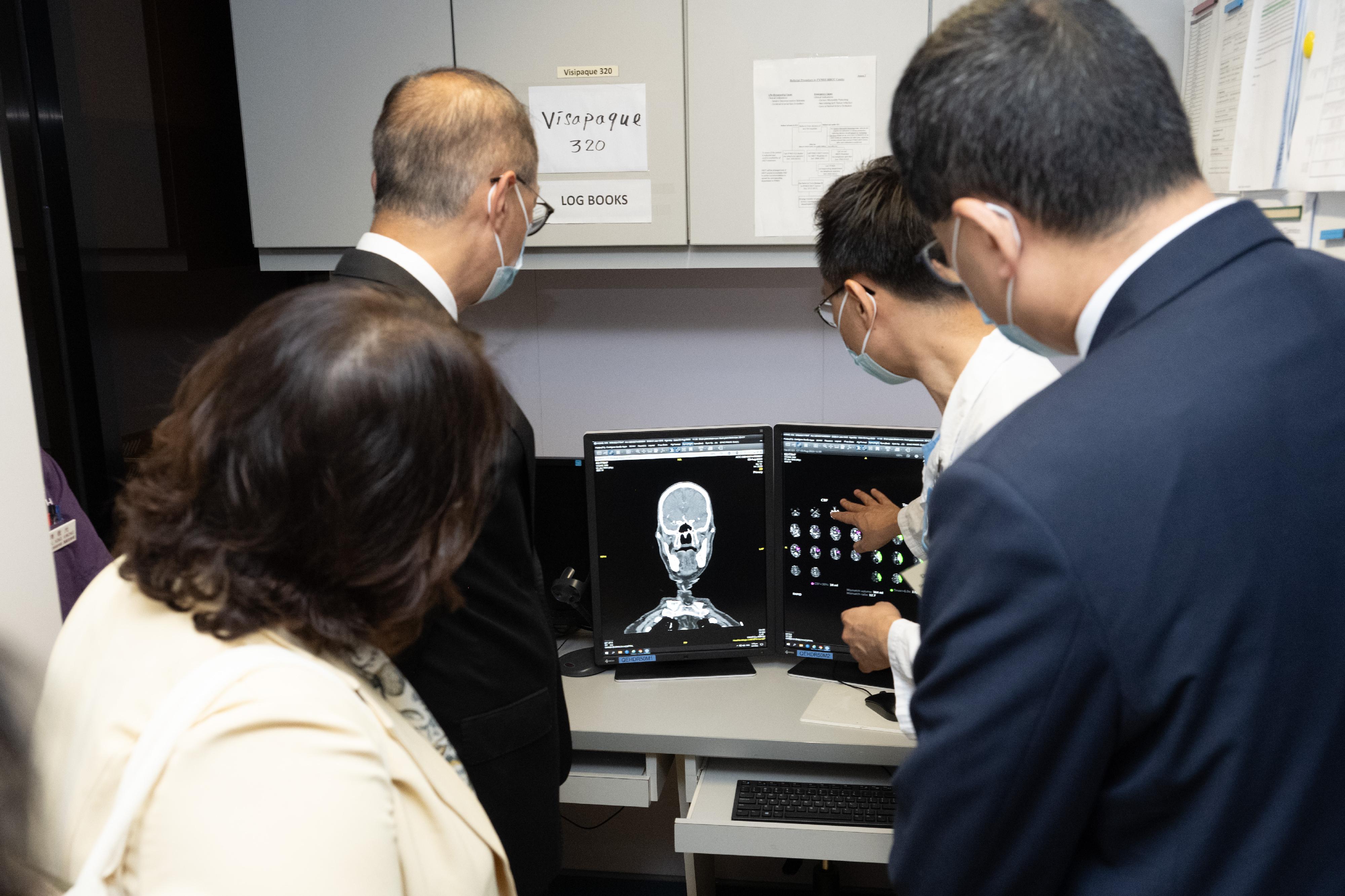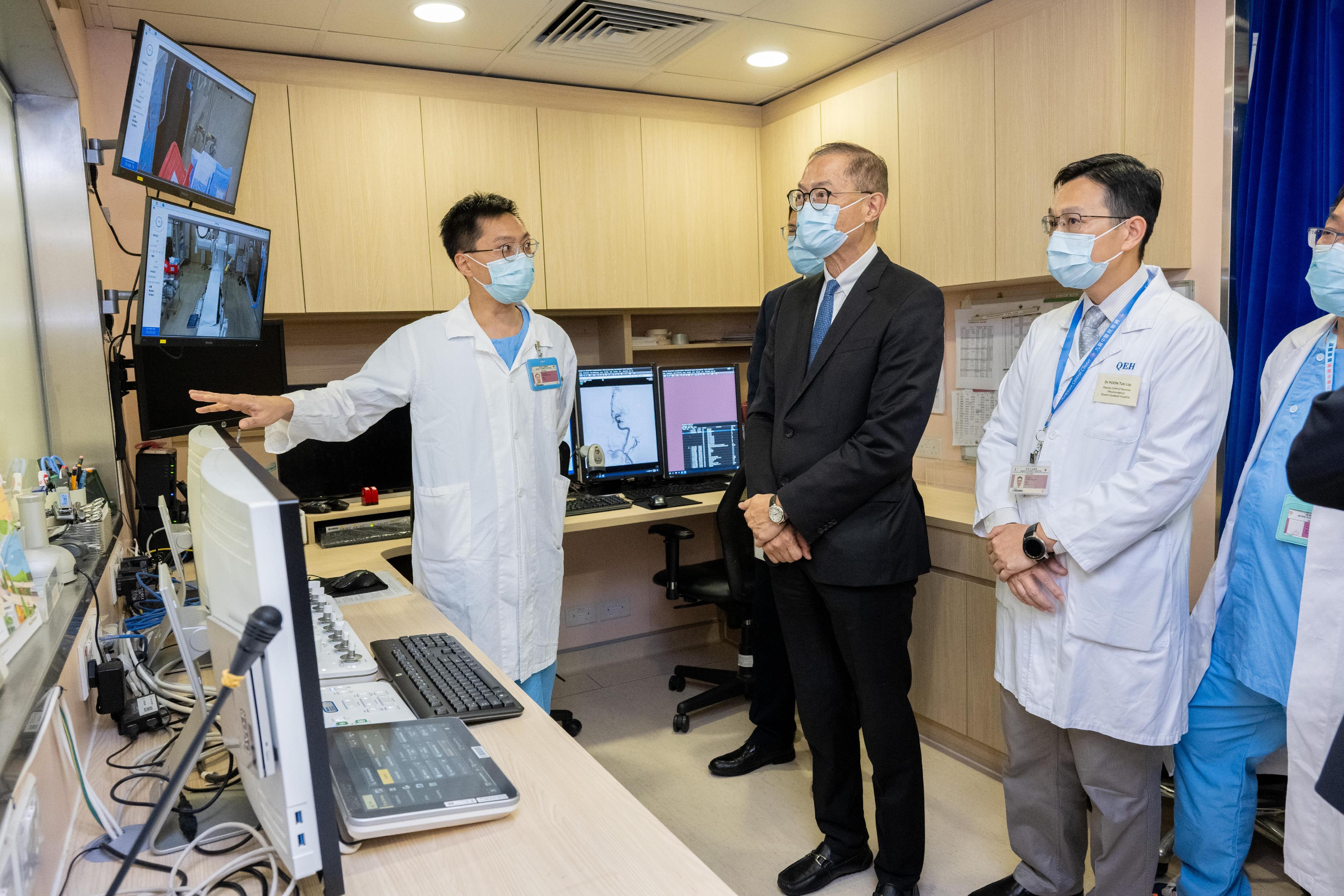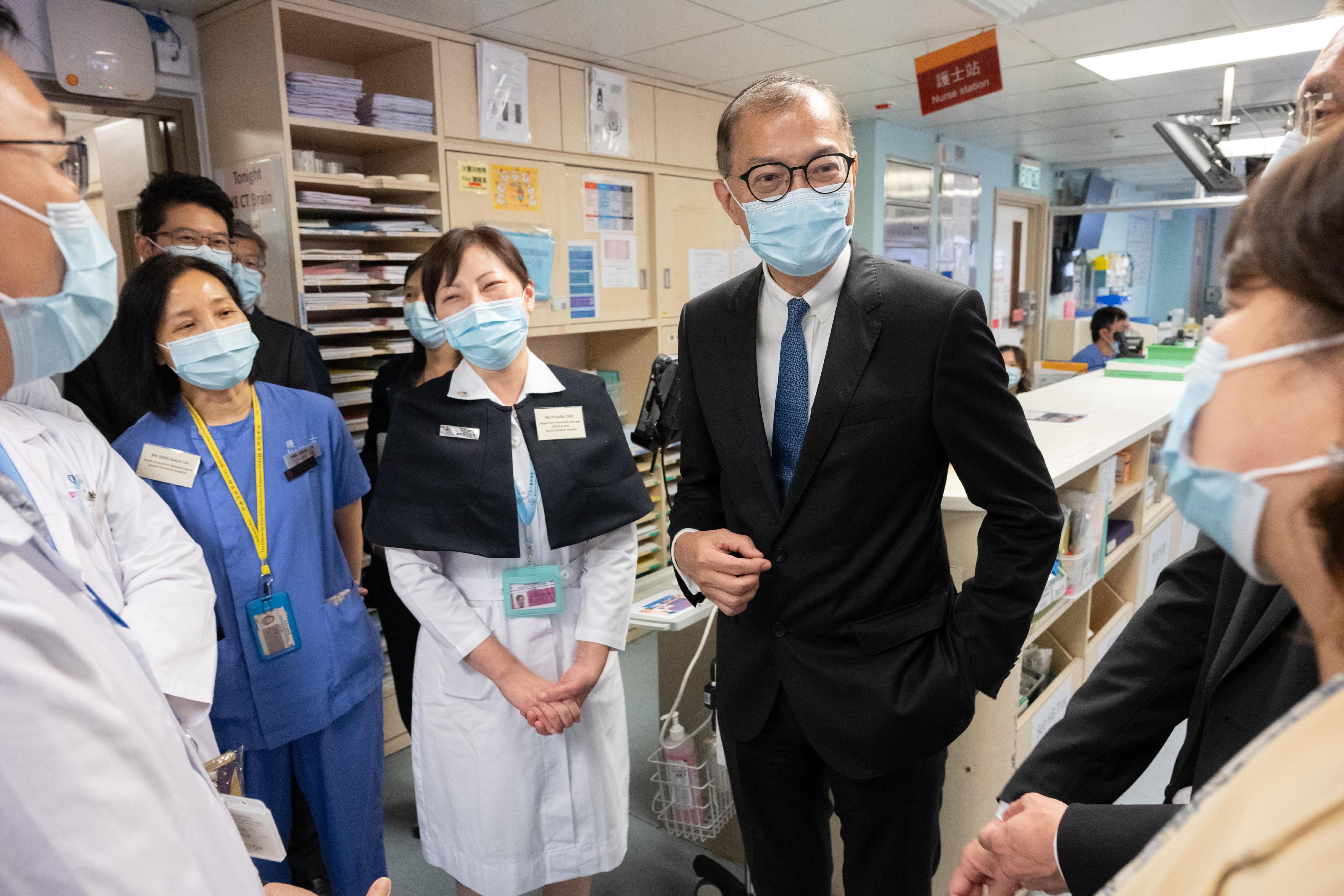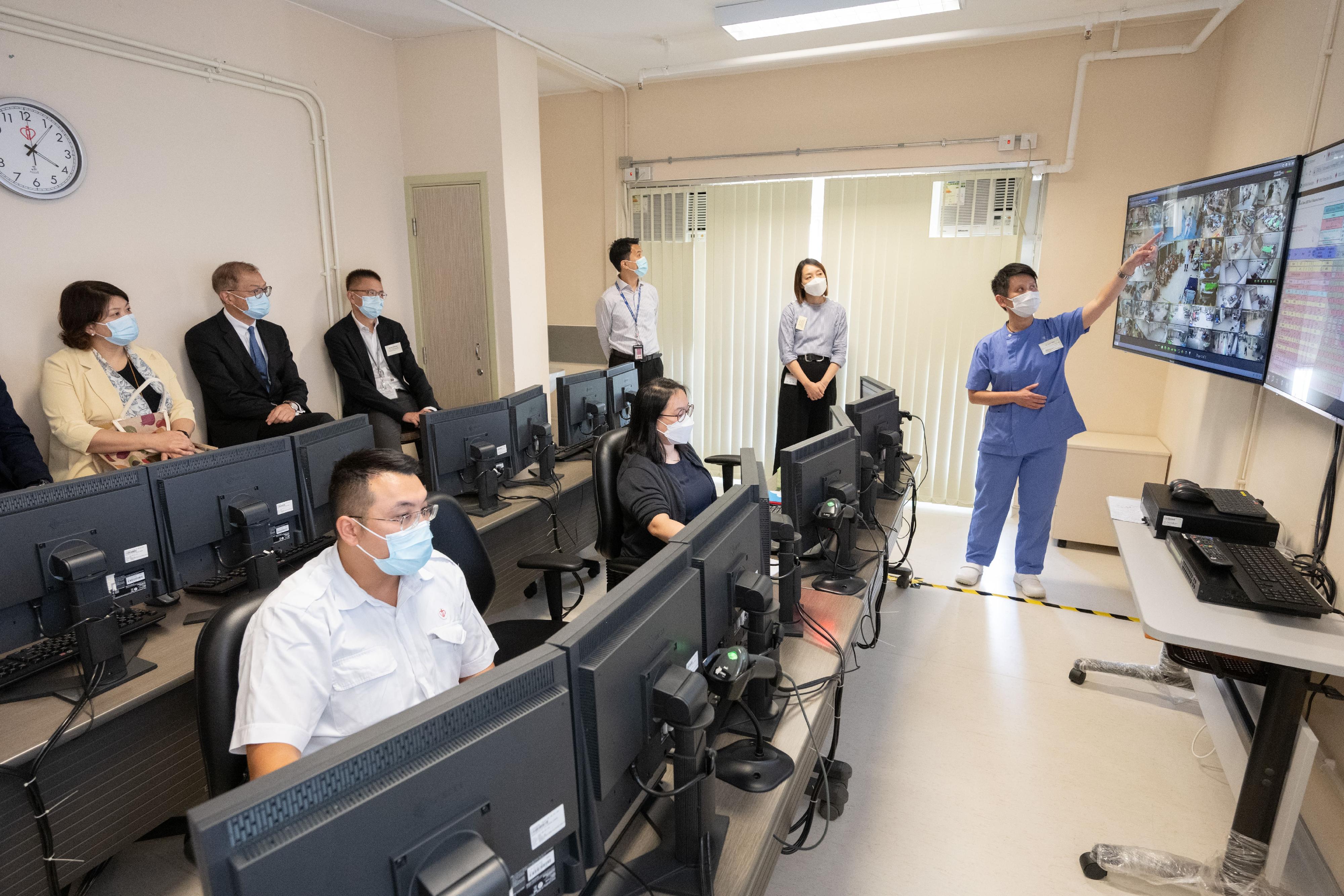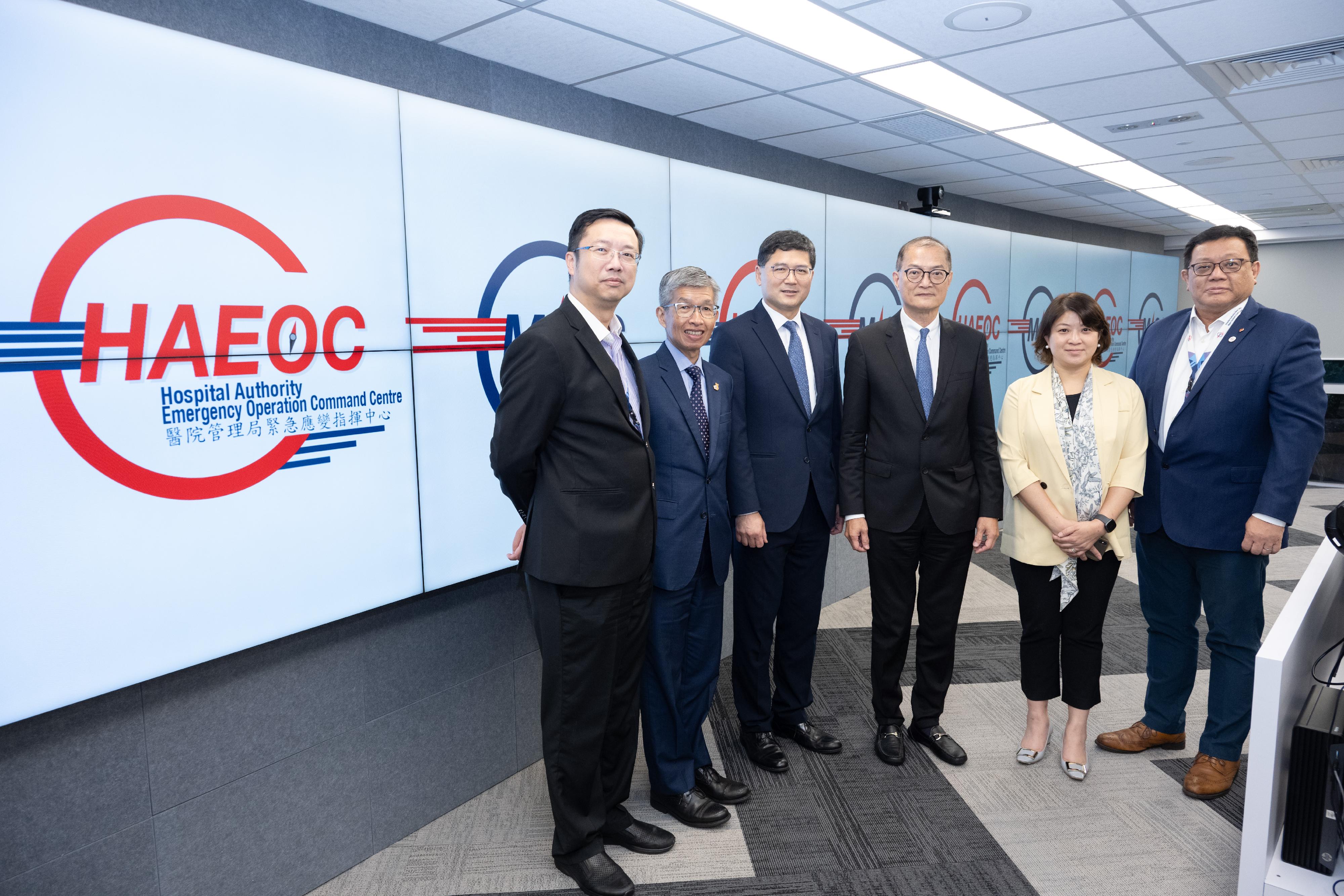Police Anti-Deception Coordination Centre (ADCC) of the Commercial Crime Bureau launched a new wave of territory-wide publicity campaign against phishing scams today (August 9), and together with the Office of the Communications Authority (OFCA), explained trends in such scams and combating measures.
From January to May 2023, the Police received 15 792 reports of frauds, the majority of which (11 700) were online ones. Such frauds accounted for 74.6 per cent of the overall fraud figure, with the amount of money involved amounting to HK$1.58 billion. Among such frauds, there were 2 369 phishing scams, accounted for 15 per cent of the overall fraud figure, with the amount of money involved amounting to near HK$50 million. Scammers impersonate banks, telecommunications companies, public bodies, etc. to send fraudulent messages (SMS messages in most cases) to the public to obtain their credit card information with various excuses, e.g. claiming that the points in their accounts will expire soon or they are eligible for gift redemption. After entering credit card information on fraudulent websites, the victims will find that their credit cards have been stolen.
Besides phishing scams, fraudsters will also frequently use the Internet, social media, mobile phones, etc. to send phishing messages to victims. The most common types of frauds include investment scams and employment scams. From January to May 2023, the Police received 1 243 reports of online investment scams, with the amount of money involved amounting to HK$620 million, and 1 820 reports of online employment scams, with the amount of money involved amounting to near HK$370 million. After contacting the victims by phishing messages, scammers will create different scam scenarios according to victims’ personal backgrounds, incomes and psychological conditions to lure them walk into traps. Therefore, any person may become the victim of the next fraud, irrespective of their age, educational background and income level.
The Police, OFCA and mobile network operators (MNOs) set up in early September 2022 a working group which is committed to, from the perspective of telecommunications services, co-ordinating the study and implementation of various measures by the telecommunications industry to combat fraudulent calls and messages delivered through telecommunications networks, and enhancing various anti-deception publicity and education for the public. Such measures include:
(1) Since May 1, 2023, mobile service providers have started to send voice alert or text alert for incoming calls with calling numbers prefixed with “+852” to alert mobile service users that the calls are from outside Hong Kong, enabling receivers to stay vigilant against such calls which originate from outside Hong Kong even though the calling numbers may be masqueraded as Hong Kong phone numbers. OFCA also updated the “Code of Practice in relation to Calling Line Identification and Other Calling Line Identification Related Services” in February 2023 to provide telecommunications operators with practical guidelines to block suspicious calls starting with “+852”.
(2) With the co-ordination of OFCA, telecommunications operators and the Police have established a liaison protocol, based on the deception records and information provided by the Police, to block or suspend services of the phone numbers suspected to be involved in deception cases and to prevent users from accessing to suspected fraudulent websites.
(3) OFCA has also formulated a code of practice which requires mobile service providers to monitor calls originated from their networks and systems. Once having identified calling modes suspected to be involved in deception, mobile service providers will take appropriate action to suspend the telecommunications services of relevant phone numbers.
(4) OFCA, mobile service providers, the banking industry and the Police, are formulating technical proposals and details in relation to the implementation of the registration scheme for SMS senders. The scheme will be launched for the telecommunications and banking industries by the end of this year to assist the public in ascertaining the authenticity of SMS sender addresses.
In order to effectively prevent fraud cases, apart from stepping up combating measures, it is essential to raise public awareness of defrauding tricks and response plans. With the aim to enhance public alertness to phishing message scams, the ADCC has launched a publicity campaign titled “Don’t Click On Embedded Links in SMS messages without Hesitation” to educate members of the public about the right ways to deal with suspected fraudulent messages. The public are also advised not to reply to uninvited messages, click on fraudulent links and check it first if in doubt. If the members of the public suspect that they have fallen prey to scams, they should call ADCC’s round-the-clock enquiry hotline “Anti-Scam Helpline 18222” and seek verification with “Scameter” or “Scameter+”.
Renowned local musician Harry Ng has been invited to write the promotional song “There’s no free lunch” for the campaign, which is performed by the band “HEA”, comprising Harry Ng, Edwin Siu and Albert Au. On the other hand, “HEA” has taken part in two publicity videos promoting prevention of phishing message scams, in which the defrauding tricks used by scammers are pinpointed, subsequent to ADCC’s case analysis. The videos have been uploaded to the promotional website www.I-Got-U.org for public access.
With the tremendous support of OFCA and MNOs, SMS featuring the anti-deception publicity campaign has been gradually sent to local mobile phone users starting early August to spread more widely the anti-deception message of “beware of suspicious SMS messages” to each member of the public.
Moreover, the ADCC will deploy five promotional trucks, including a 3D one, to 15 locations from August 11 to 13, 2023. ADCC officers will join police officers in districts and community leaders to distribute anti-deception souvenirs to the public who are welcome to join. For details of the event, please visit the official website of the ADCC at www.adcc.gov.hk or the event webpage at www.I-Got-U.org.

